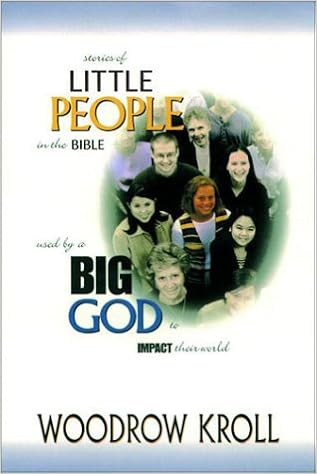
Why Should I Trust the Bible?
By A. Trevor Sutton
Not every question about the Bible has a Sunday school answer. Isn’t the Bible racist? Isn’t it out of date? Didn’t people change it over time? And if you give a simple answer… it often doesn’t reflect reality. In Why Should I Trust the Bible A. Trevor Sutton tackles the questions head on with whimsy and panache, addressing a number of questions with a touch of sarcasm and a lot of Jesus.
I love the basis of this book. “Why can I trust the Bible? Answer: Jesus” (19). Sutton hits it out of the park by starting there. He explains: “His life, death, and resurrection provide the trustworthy foundation for every page in the Bible. The Bible would be simply a book like every other book in human history if it were not for Jesus. He is the foundation for our trust in the Bible” (16).
But the thing I love is also a liability. This book is meant to be read by Christians; this isn’t a book you’re likely to hand to someone who’s already doubting the Bible. Instead, it’s meant for Christians to read to be able to answer objections directly. The book assumes that the Bible is God’s Word from the beginning, and that it’s about Jesus. In fact, Sutton ends the book with an objection that says, “Grace is too easy.” I love that he concludes with the gospel. He also addresses it very honestly: “Fully comprehending God’s work of salvation is easily the most mind-bending, heart-wrenching, soul-stretching endeavor imaginable” (184).
In fact, throughout the book he’s not afraid to call some objections to the Bible lazy or incomprehensible if you actually read the Bible, but he takes each objection seriously. He compares the Bible to other ancient literature like the Epic of Gilgamesh. Or more modern works, like Faulkner’s stories. But every time he takes each objection seriously. For instance, one objection is, “There’s so many interpretations, it can’t be true!” He responds, “The disagreements about how best to interpret the Bible are not evidence that it should not be trusted; rather, they are proof that Christians take the Word of God seriously” (149).
Through it all, he encourages readers to investigate on their own. “Trust in the Bible is not built on sweeping statements without analysis. Rather, trust in the Bible is built on bold statements that can be dissected and discussed, explored and examined” (61). So explore and examine!
Sutton tackles a number of objections. The downside is that each objection gets about five to ten pages. What that means is that he addresses a wide range of concerns. The downside is that none of them go too deep. On the other hand, at least in my experience, most people who use these kind of objections are speaking from ignorance. Answering an objection honestly and humbly, even on the level of this book, can open up discussion and hopefully help someone realize that it’s not as open and shut against the Bible as they might think.
But as Sutton keeps driving each section back to Jesus, the reader also has an example of how to take the discussion back to what matters most: Law and Gospel.
And again, Sutton encourages further study:
Keep going. Press on. Lean in. Pray that the Holy Spirit would engage your whole heart and your whole mind in answering these questions. Read more books about the Bible, study Scripture with others, and ask difficult questions. And above all, keep following Jesus. He is at the center of Scripture. He is the Word made flesh. Jesus is the real and living person around whom the Bible coheres. And He is the one and only source of eternal life. (197-8)
This book should be on your shelf. It’s a great step into apologetics, knowing more about the Bible, and answer serious questions honestly.









